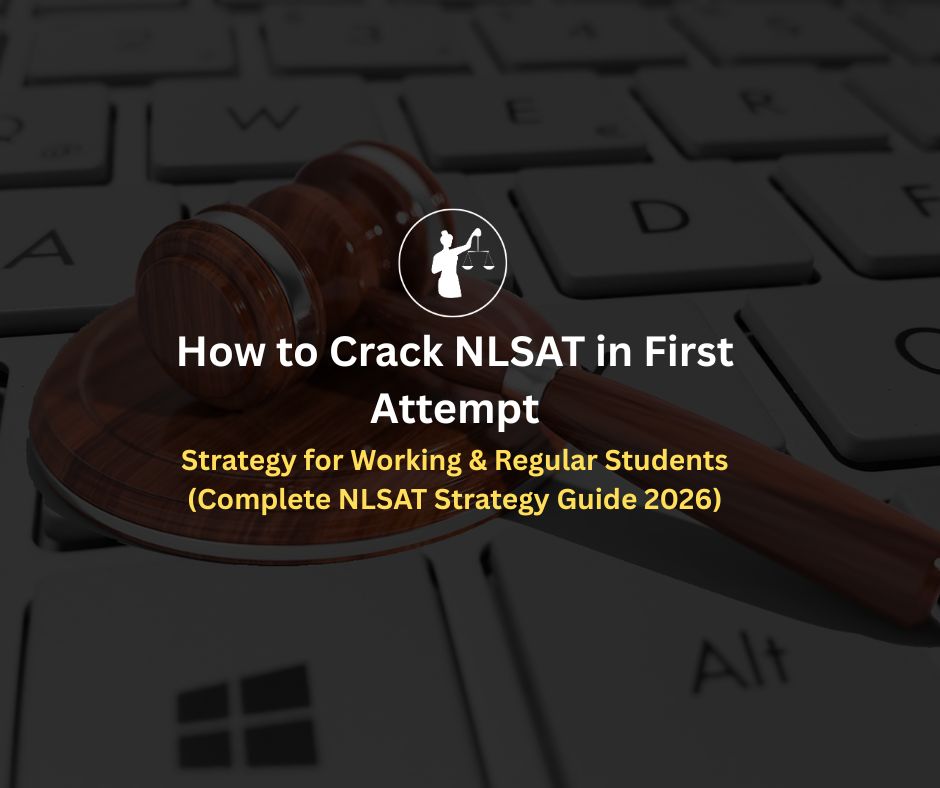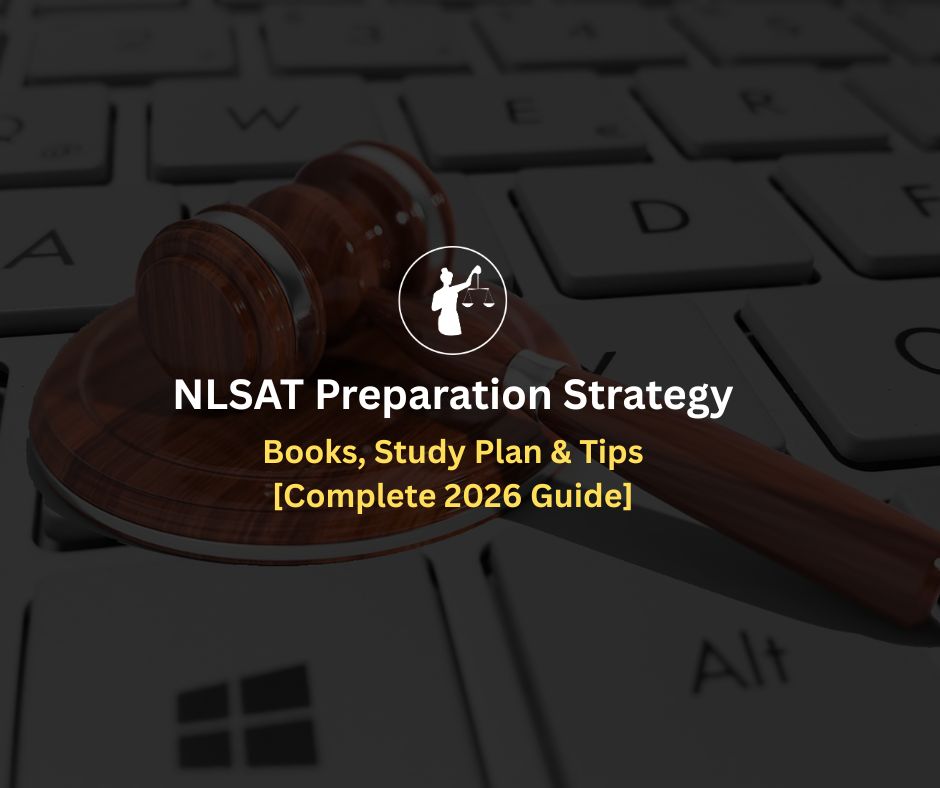The Common Law Admission Test (CLAT) is a crucial stepping stone for aspiring lawyers in India. Administered by the Consortium of National Law Universities, CLAT serves as the gateway to 24 prestigious National Law Universities (NLUs) across the country. Given its competitive nature and rigorous format, effective time management is essential for success in the CLAT exam. This comprehensive guide will provide you with detailed strategies and actionable tips to master time management, both during preparation and on the exam day.
The CLAT exam comprises five sections English Language, Current Affairs & General Knowledge, Legal Reasoning, Logical Reasoning, and Quantitative Techniques. Each section demands a unique approach and strategic allocation of time. Understanding the weightage and format of each section is the first step towards effective time management.
English Language
This section typically includes 22-26 questions based on passages. Each question carries 1 mark, with a penalty of 0.25 marks for incorrect answers.
Current Affairs & General Knowledge
Comprising 28-32 questions, this section tests your awareness of recent events and general knowledge.
Legal Reasoning
With 28-32 questions, this section evaluates your understanding of legal principles and their application.
Logical Reasoning
This section includes 22-26 questions that assess your logical thinking and analytical abilities.
Quantitative Techniques
This section consists of 10-14 questions based on mathematical concepts.
Effective time management begins with your preparation. Here are some strategies to help you make the most of your study time:
Identify Strong and Weak Areas
Conduct a self-assessment to determine your strengths and weaknesses. This will help you allocate more time to sections that need improvement while maintaining proficiency in areas where you excel.
Create a Study Schedule
Design a realistic and balanced study timetable. Allocate specific time slots for each section and stick to the schedule. Consistency is key to retaining information and building a strong foundation. Utilize the Pomodoro Technique, where you study for 25 minutes followed by a 5-minute break. After four cycles, take a longer break of 15-30 minutes. This method helps maintain focus and prevents burnout.
Set Achievable Goals
Break down your preparation into manageable targets. Set daily, weekly, and monthly goals to track your progress. Achieving small milestones can boost your confidence and keep you motivated. Use the SMART criteria (Specific, Measurable, Achievable, Relevant, Time-bound) to ensure your goals are clear and attainable.
Use Quality Study Materials
Invest in recommended books, online resources, and practice papers. Quality materials provide accurate information and practice questions that mirror the actual exam pattern.
Regular Practice
Solve previous years’ papers and take mock tests regularly. This practice will familiarize you with the exam format, improve your speed, and help you develop effective time management strategies. Simulate exam conditions while taking mock tests to build your endurance and improve your ability to manage time under pressure.
Each section of the CLAT exam requires a tailored approach to time management. Here are some strategies to optimize your performance in each section:
English Language:
Allocate 20-25 minutes
Aim to complete this section within 20-25 minutes to save time for other sections.
Focus on Reading and Comprehension Skills
Improve your reading speed and comprehension by practicing with passages from various sources.
Practice Skimming and Scanning
Develop the habit of skimming through passages to get the gist and scanning for specific information to answer questions quickly.
Current Affairs & General Knowledge:
Allocate 10-15 minutes
This section should be completed swiftly to maximize time for more demanding sections.
Stay Updated
Read newspapers, follow reputable news websites, and use monthly current affairs magazines to stay informed about recent events.
Use Reliable Sources
Focus on reliable sources for accurate and comprehensive coverage of current affairs.
Legal Reasoning:
Allocate 30-35 minutes
Given its weightage, spend around 30-35 minutes on this section.
Understand Basic Legal Principles
Study fundamental legal concepts and their applications.
Practice Case Studies
Solve questions to enhance your legal application skills
Logical Reasoning:
Allocate 25-30 minutes
Aim to complete this section within 25-30 minutes.
Focus on Speed and Accuracy
Develop techniques to solve logical reasoning questions quickly and accurately.
Quantitative Techniques:
Allocate 15-20 minutes
Spend around 15-20 minutes on this section.
Strengthen Basic Mathematical Concepts
Review fundamental math concepts and practice problems regularly.
Practice Time-Bound Problem Solving
Solve quantitative questions within a set time limit to improve your speed.
Incorporating structured techniques into your daily routine can significantly improve your time management skills. Here are some tried-and-tested methods:
Time Blocking
Allocate specific blocks of time for different activities, such as study sessions, breaks, and leisure. This technique helps you focus on one task at a time and reduces the likelihood of distractions.
Eisenhower Matrix
Prioritize your tasks using the Eisenhower Matrix, which categorizes activities into four quadrants based on urgency and importance. Focus on tasks that are both urgent and important and delegate or eliminate tasks that are neither.
80/20 Rule (Pareto Principle)
Identify the 20% of activities that yield 80% of your results. Prioritize these high-impact tasks to maximize your productivity.
Mind Mapping
Use mind maps to organize your study material visually. This technique helps you see the connections between different topics and improves your ability to recall information.
Batch Processing
Group similar tasks together and complete them in one go. For example, dedicate a specific time for solving quantitative problems or reading comprehension passages. This approach reduces the cognitive load of switching between different types of tasks.
Effective time management on the exam day is crucial to maximize your performance. Here are some strategies to help you manage your time efficiently during the exam:
Read Instructions Carefully
Start by reading the exam instructions thoroughly to avoid mistakes and understand the marking scheme.
Time Allocation for Each Section
Stick to the pre-planned time slots for each section to ensure you cover all parts of the exam.
Skim Through the Paper First
Quickly go through the entire paper to identify easier and more challenging questions. This initial scan will help you plan your approach.
Answer Easy Questions First
Tackle less time-consuming questions initially to boost your confidence and secure marks quickly.
Use the Elimination Method
For multiple-choice questions, eliminate clearly incorrect options to narrow down your choices and save time.
Keep Track of Time
Regularly check the clock to ensure you are on track with your time plan. Avoid spending too much time on a single question.
Stay Calm and Composed
Techniques like deep breathing can help you stay calm and focused during the exam.
Skip and Return
If you encounter a difficult question, skip it and move on to the next one. Return to the skipped questions later if time permits.
Balancing preparation and managing stress is vital for effective time management. Here are some tips to help you maintain a healthy lifestyle and stay motivated:
Healthy Lifestyle
Regular exercise, adequate sleep, and a balanced diet are essential for maintaining physical and mental well-being.
Mindfulness Practices
Incorporate mindfulness practices such as meditation, deep breathing, and yoga into your daily routine to reduce stress and improve concentration.
Breaks and Leisure Activities
Take regular breaks to avoid burnout. Engage in leisure activities to relax and recharge.
Positive Mindset
Maintain a positive outlook and stay motivated throughout your preparation journey. Celebrate small victories and progress to keep your spirits high.
Support System
Seek support from family, friends, or mentors. Discussing your concerns and progress with others can provide valuable insights and emotional support.
In conclusion, mastering time management is crucial for success in the CLAT exam. By understanding the exam structure, following a disciplined preparation routine, and implementing effective time management strategies on the exam day, you can enhance your performance and maximize your chances of securing a seat in a top National Law University.
Key Takeaways:
Prioritize study material based on importance and difficulty.
Create a well-structured study schedule with allocated time slots for each subject.
Utilize effective study techniques such as breaking down complex topics and practicing with mock tests.
Seek guidance from mentors or teachers when needed.
Maintain a healthy work-life balance and take regular breaks to avoid burnout.
Stay disciplined, consistent, and positive throughout your CLAT preparation journey.
By following these strategies and maintaining a disciplined approach, aspirants can enhance their time management skills and improve their chances of success in the CLAT exam.





